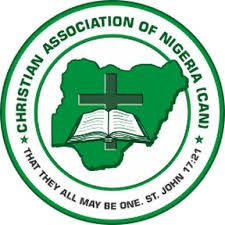


Makinde suspends revenue collection on agric produce to alleviate hardship
…To subsidise land clearing, provide haulage trucks, tractors
Oyo State governor, ‘Seyi Makinde, has suspended the revenue collection on agric produce to alleviate hardship.
The Governor declared some far-reaching measures towards addressing the rising cost of food in the state, stating that his government will continue to do everything necessary to make life easy for residents of the state.
He declared that his government will move in to subsidise land clearing for farmers across the state with an initial sum of N600 million, with farmers now expected to pay N15,000 instead of N30,000 for land clearing, while the government will pay the balance.
The governor also declared an immediate suspension of revenue collection on farm produce marketed within the state for the next six months, noting, however, that agricultural produce taken out of the borders of Oyo State will attract necessary revenues.
Governor Makinde, who stated this on Wednesday, at a meeting with stakeholders in the agriculture sector, held at the Fasola Agribusiness Industrial Hub, Oyo, said the government would also provide tractors and haulage trucks for farmers, among other measures.
The governor, who said the state has disbursed N1billion to smallholder farmers through the Sustainable Action for Economic recovery (SAfER), also declared that the Agriculture Credit Corporation of Oyo State (ACCOS) loan support to farmers will no longer require a civil servant as guarantor, stating that farm associations will now guarantee their members to have access to the loan.
At the meeting, which had in attendance maize growers, cassava growers, rice processors, poultry farmers and traders across the state as well as officials of the Ministry of Agriculture, ACCOS and Oyo State Agribusiness Development Agency, the governor maintained that there was need for a brainstorming session to address the food security challenge facing the state.
Governor Makinde noted that though his government had done well in trying to stimulate and support the process of food security, with data showing that the state had made progress in terms of food production, it was worrisome that that progress had not been reflected in terms of food pricing.
He maintained that since the removal of fuel subsidy, his administration has been doing everything possible to make life easier for residents of Oyo State, including spending N77 million monthly to subsidise public transportation for 20,000 residents of the state on a daily basis, among other measures and that it would do everything possible to stem the tide of rising food cost.
He said, “I deliberately moved this meeting here because this place was established when agriculture used to be the mainstay of our economy.
“In Oyo State, we have been getting data on what we have been producing, which suggests that our production is on the increase but the prices of food stuffs are also increasing.
“As a government, we have also done quite a bit to stimulate and support the process of food security. It is either what we are doing is not enough or they are not being channeled to the right sources.
“So, our meeting here is not a talk-shop but to brainstorm on some issues and bring up solutions. I expect you to open up so we can tackle the problem we have on the ground.
“I have noted some few things from the points you all raised and there are few decisions we are going to take. The first one is the issue of revenue, because those in charge are compounding the problem of increment in prices of food stuff. For the next six months, nobody should collect any revenue and all the people involved should know that this takes effect immediately.
“We will set up a special line you can call when you have issues with recalcitrant revenue collectors who are not ready to abide by this pronouncement.”
The governor added, “We will provide an initial N600 million through the ACCOS to subsidise the cost of hiring tractors. The modalities of how our smallholder farmers can access this subsidy will be worked out and communicated to them. In total, we plan to subsidise the clearing of at least 120,000 hectares this planting season.”
Governor Makinde, who also responded to different views from the agriculture stakeholders, including the dearth of agriculture extension services, cost of produce haulage and other issues, added that the Pacesetter Transport Services will, in the course of the coming weeks, be supported to have a fleet of haulage vehicles dedicated for the movement of farm produce across the state.
He equally set up a 10-man committee comprising agriculture stakeholders and government officials, with the mandate “to track the decisions we have taken here today so that six months down the line when we gather again to look at how far we have gone, it will be quite easy to track those things.”
He added, “You also said the extension workers were visible under OYSADEP but not visible again under OYSADA. It is because they are now under the Ministry of Agriculture.
“I asked the Commissioner why they are not active and he said there was no budget for them before he got into the office but there is a budget this year and there will be changes. But if we do not feel their impact, we will move them to OYSADA. What this means is, they have to be visible and contribute to the efforts we are putting into food production in the state.”



